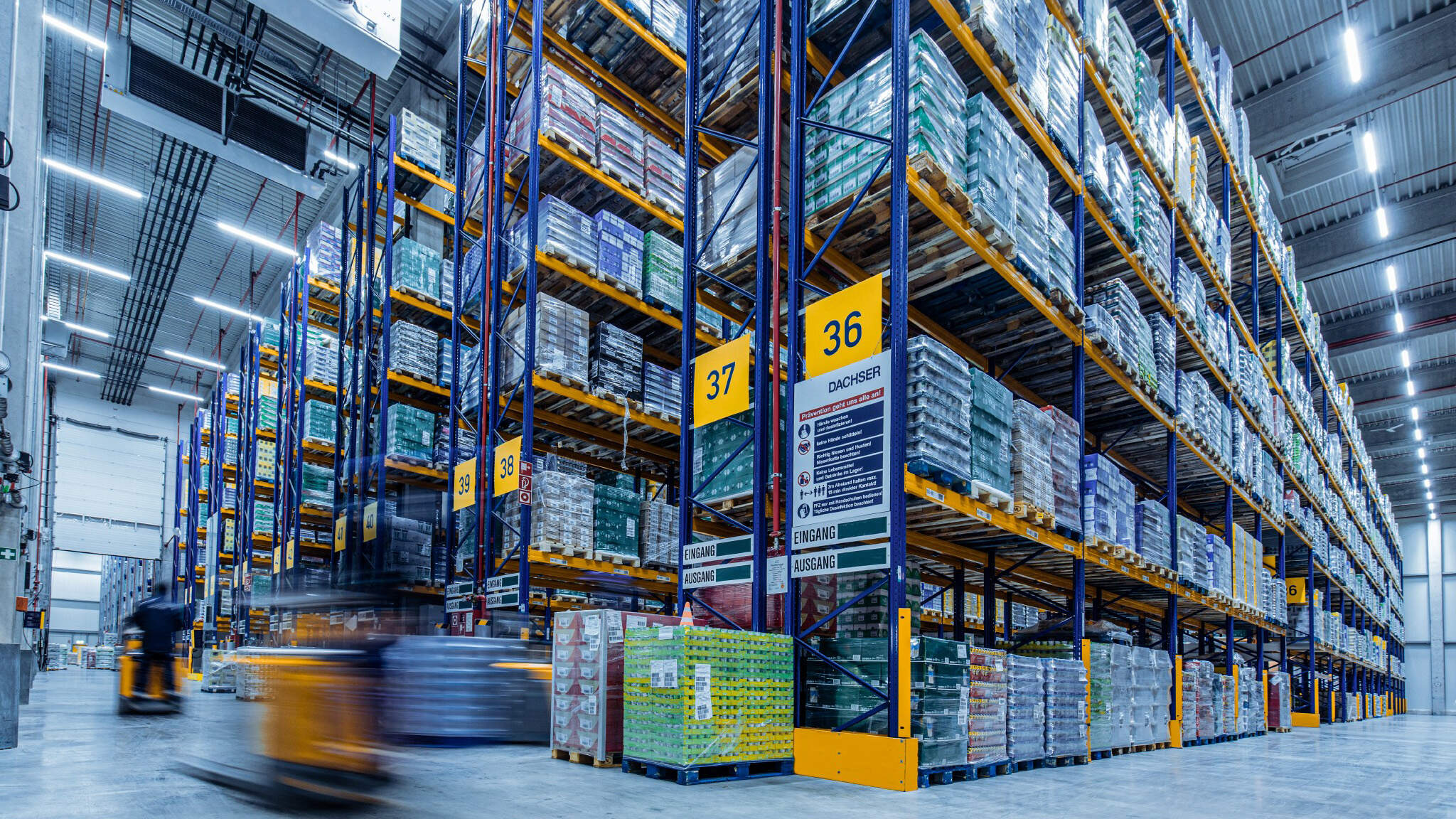Ready to turn insight into action?
We help organisations transform ideas into measurable results with strategies that work in the real world. Let’s talk about how we can solve your most complex supply chain challenges.

Transportation plays a crucial role in supply chain management, linking suppliers, manufacturers, warehouses, and customers. However, transportation also represents one of the largest operating costs for most organisations. Rising fuel costs, inefficiencies in route planning, and underutilised vehicles can erode profitability and increase carbon emissions. To remain competitive in today’s fast-paced markets, organisations must focus on transport optimisation and cost reduction strategies.
Transport optimisation involves designing more efficient transportation networks, selecting the best routes, and ensuring that loads are consolidated for maximum efficiency. In combination with cost reduction initiatives, these strategies help businesses enhance service levels, reduce environmental impact, and lower operational expenses.
In this article, we will explore the key elements of transport optimisation, the benefits of cost reduction strategies, and how businesses can achieve a more efficient and cost-effective transportation network.
The Importance of Transport Optimisation in Supply Chains
Transport optimisation is critical for achieving supply chain efficiency and meeting customer expectations. Businesses that can streamline their transport operations stand to gain significant benefits, including:
- Cost Savings
Transportation is often one of the largest logistics expenses, accounting for a significant portion of supply chain costs. Optimising transport routes, consolidating shipments, and reducing empty miles can lead to substantial cost savings. - Improved Customer Service
Efficient transport operations lead to faster and more reliable deliveries, which is essential for meeting customer expectations. Timely deliveries help improve customer satisfaction and build brand loyalty. - Reduced Carbon Footprint
Transport optimisation reduces fuel consumption and emissions by consolidating loads, choosing the most efficient routes, and using eco-friendly transportation modes. As sustainability becomes increasingly important, reducing the carbon footprint of transportation operations is a major priority for many organisations. - Risk Mitigation
Transport optimisation can help mitigate risks such as delays, missed deliveries, and fluctuating fuel prices. By improving route planning and ensuring transport resilience, businesses can reduce the likelihood of supply chain disruptions. - Better Utilisation of Resources
Efficient transport operations ensure that vehicles are fully utilised, reducing the number of trips and idle time for drivers. This maximises the use of transportation assets and reduces overall logistics costs.
Key Components of Transport Optimisation
To achieve transport optimisation, businesses need to focus on several key areas:
- Route Optimisation
Route optimisation involves selecting the most efficient routes for deliveries, reducing travel time, fuel consumption, and overall logistics costs. Advanced route optimisation tools can help plan routes that minimise empty miles, avoid traffic congestion, and reduce wear and tear on vehicles. Route planning should also take into account real-time data, such as weather conditions, road closures, and traffic updates. - Load Consolidation
One of the most effective ways to reduce transportation costs is through load consolidation. By combining shipments into a single vehicle, businesses can reduce the number of trips required and maximise vehicle utilisation. Load consolidation ensures that trucks are fully loaded, reducing both fuel consumption and labour costs. - Fleet Management and Maintenance
Effective fleet management is essential for optimising transportation operations. This includes monitoring vehicle performance, scheduling regular maintenance, and ensuring compliance with safety regulations. Well-maintained vehicles are more fuel-efficient, experience fewer breakdowns, and have a longer lifespan, all of which contribute to cost savings. - Mode Optimisation
Mode optimisation involves selecting the most cost-effective and efficient transportation mode for each shipment. Businesses can often reduce costs by using a combination of transportation modes, such as road, rail, and sea freight, depending on the shipment's size, weight, and delivery timeline. Intermodal transport solutions provide flexibility and can significantly reduce costs for long-distance or international shipments. - Technology Integration
Implementing transportation management systems (TMS) and real-time tracking tools is crucial for optimising transport operations. A TMS can help businesses plan, execute, and monitor their transportation activities, providing visibility into every aspect of the supply chain. Real-time tracking allows companies to monitor shipments, anticipate delays, and make adjustments to minimise disruptions. - Carrier Management and Collaboration
Businesses often rely on third-party logistics providers or carriers to handle their transportation needs. Effective carrier management involves negotiating favourable contracts, monitoring carrier performance, and fostering collaborative relationships with transport providers. By collaborating with carriers, businesses can achieve more efficient transportation operations, negotiate better rates, and improve service levels.
Cost Reduction Strategies for Transportation
In addition to optimisation, businesses need to implement cost reduction strategies that help them manage transportation expenses more effectively. Some of the most impactful cost reduction strategies include:
- Fuel Efficiency Programs
Fuel is one of the largest expenses in transportation. Implementing fuel efficiency programs, such as optimising driving behaviours (e.g., reducing idling and speeding) and using fuel-efficient vehicles, can lead to significant savings. Investing in alternative fuel vehicles, such as electric trucks, can also help reduce long-term fuel costs and lower carbon emissions. - Supplier and Carrier Negotiations
Businesses should regularly review and negotiate contracts with their suppliers and carriers to ensure they are getting the best possible rates. By leveraging economies of scale or volume discounts, companies can reduce transportation costs while maintaining high service levels. - Outsourcing vs. In-House Fleet
Deciding whether to maintain an in-house fleet or outsource transportation to third-party providers is a critical decision for many businesses. Outsourcing can provide access to a wider network of carriers, reduce capital expenses, and increase operational flexibility. On the other hand, in-house fleets offer greater control over operations and service levels. - Dynamic Pricing and Freight Procurement
Businesses can use dynamic pricing models and freight procurement platforms to secure the most competitive rates for their transportation needs. Dynamic pricing adjusts transport rates based on demand, capacity, and other factors, allowing businesses to take advantage of cost savings during off-peak times or when carriers have excess capacity. - Reducing Return Logistics
Reverse logistics—managing returns, repairs, or recycling—can be costly and complex. Businesses can reduce reverse logistics costs by improving order accuracy, minimising returns, and streamlining the process for handling returned goods. - Optimising Delivery Schedules
By optimising delivery schedules and consolidating shipments, businesses can reduce the frequency of trips and the associated transportation costs. Businesses should also consider using fewer, but larger, shipments to reduce transportation expenses.
Challenges in Transport Optimisation and Cost Reduction
Although transport optimisation and cost reduction deliver significant benefits, businesses may face challenges in implementing these strategies:
- Complex Supply Chains
Businesses with complex or global supply chains often face challenges in managing multiple carriers, transportation modes, and regulatory requirements. Coordinating transportation across borders or different regions requires advanced planning and specialised tools. - Rising Fuel Prices
Volatile fuel prices can impact transportation costs and make it difficult for businesses to predict and manage expenses. Businesses must develop strategies for dealing with fluctuating fuel costs, such as hedging fuel or investing in fuel-efficient technologies. - Technology Integration
Many organisations struggle to implement or integrate advanced transportation management technologies into their existing operations. The cost of technology, coupled with the need for staff training, can create barriers to optimisation. - Environmental Regulations
As governments introduce stricter environmental regulations, businesses must adapt their transportation strategies to comply with emissions standards and reduce their carbon footprint. Meeting these requirements while maintaining cost-effectiveness can be challenging.
The Role of Supply Chain Consultants in Transport Optimisation
Supply chain consultants bring valuable expertise and advanced tools to help businesses optimise their transportation operations and reduce logistics costs. Here’s how consultants can assist with transport optimisation projects:
- Route and Load Optimisation: Consultants analyse current transport operations to identify inefficiencies and develop strategies for optimising routes, consolidating shipments, and reducing empty miles.
- Fleet and Carrier Management: Consultants evaluate whether in-house fleets or third-party carriers are more cost-effective for the organisation’s needs. They also help negotiate contracts with carriers and monitor performance to ensure service quality and cost efficiency.
- Technology Implementation: Consultants assist with the implementation of transportation management systems (TMS) and other advanced tools to improve visibility, streamline operations, and enable real-time tracking of shipments.
- Cost Analysis and ROI: Consultants provide cost-benefit analyses for various transport optimisation strategies, ensuring that investments in new technologies or processes deliver a strong return on investment (ROI).
- Sustainability Initiatives: Consultants work with businesses to reduce their environmental impact by adopting green transportation practices, such as using alternative fuel vehicles, reducing emissions, and improving fuel efficiency.
How Trace Consultants Can Help with Transport Optimisation and Cost Reduction
At Trace Consultants, we understand that transport optimisation is essential for maintaining supply chain efficiency and driving business profitability. Our team of experts specialises in helping organisations reduce logistics costs, improve transport efficiency, and meet customer demands.
We offer a wide range of services to support transport optimisation and cost reduction, including:
- Route and Load Optimisation: We develop tailored strategies to streamline your transportation routes, reduce fuel consumption, and maximise vehicle utilisation.
- Technology Integration: Our consultants help implement advanced transportation management systems (TMS) and real-time tracking tools that provide visibility into your logistics operations and ensure timely deliveries.
- Carrier Management: We work with your team to select and manage carriers, negotiate better contracts, and optimise freight rates to reduce costs while maintaining service levels.
- Sustainability in Transportation: We assist in integrating sustainability initiatives into your transport strategy, helping your business reduce emissions and meet environmental goals while improving operational efficiency.
With Trace Consultants as your partner, your organisation can achieve significant cost savings, improved service levels, and enhanced sustainability through optimised transportation operations.
Ready to turn insight into action?
We help organisations transform ideas into measurable results with strategies that work in the real world. Let’s talk about how we can solve your most complex supply chain challenges.


.avif)







